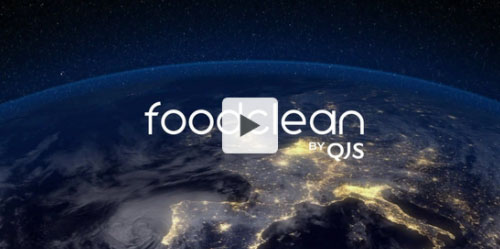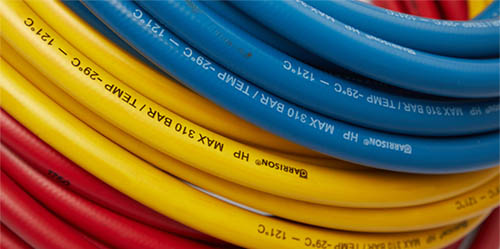Find out...
When Is A Hose Not A Hose?
The Reality:
A hose is a linear product by definition – it has 2 ends – Product goes in one end and out of the other.
However, there is a more sobering meaning to linear as it relates to hoses, and that is that hoses belong to a linear economy – take, make, dispose.
Put simply, we take raw materials from the earth, we make hose products, and then when they break, we dispose of them.
Each of the above stages comes with a grim reality:
Taking raw materials from the Earth is not sustainable long term, there is only a finite amount of resource.
Making hoses when we don’t need to adds to global pollution.
Disposing of hoses to landfill, adding to the 2.12billion tons of waste* already going to landfill. *External Source: The World Counts
The current reality is that large hoses are regarded as a ‘disposable, consumable product’, and like so many consumable items, hoses tend to be built to a price – often in far eastern factories where working conditions are potentially appalling, and made from materials that:
- Are not intended or designed to be durable
- Are not intended or designed to be recyclced
- Are only designed to tick the ‘low price’ box
60 Truck Loads of Garbage
As a result, it is our belief that an extremly high percentage of cleaning hoses used in food manufacturing plants globally are sent to landfill. From our own market data, the average amount of hoses thrown away by a commercial food manufacturing plant is 200m per year. Throughout Europe this would equate to 3.2 million metres, = 960 tons.
So what can we do to improve this situation? Can hoses become part of the circular economy?
The Circular Economy
So what can we do to improve this situation? Can hoses become part of the circular economy?
- Made from recycled materials
- Designed for durability
- Have the ability to be regenerated and reused
- Be designed to be made into a further resource once it cannot be used as a hose any longer
- Hoses designed for long life. Our obsession with durability over throwability is paying off, with more of our cleaning hose products greatly outlasting traditional designs
- We have removed metals from many of the hose designs, the main offender when it comes to short hose life.
- Hoses are often discarded when they break near the end, whilst the main section of the hose is still in perfectly good order. To counter this, FoodClean have developed the RED BOX service, whereby hoses are not thrown away but are returned to our hose workshops for renovation and repair. These are cleaned, tested and put back in to full use, often time and time again. We have examples of where this system has increased hose life up to 10 times.
In to the Future
1. Design for the future – the right materials for maximum life time, extended future use and optimal recovery. In progress
2. Incorporate digital technology – this is being worked on, watch this space, we are determined that FoodClean hoses will soon be identifiable – digitally.
3. Sustain and preserve what’s already there. Maintain, repair and upgrade resources in use to maximise their life time and give them a second life through take back strategies. Achieved!
4. Rethink the business model. Consider opportunities to create greater value and align incentives through business models that build on interaction between products and services. We have some incredible ideas on this.
5. Use waste as a resource. Utilise waste streams as a source of secondary resource. We have a lead on this, begin with the end in mind and make hoses from materials that can be turned into something useful at the end of their life.
6. Prioritise regenerative resources. Ensure renewable, re-usable, non-toxic materials are utilised.
7. Team up to create joint value. Work together throughout the supply chain, internally, throughout organisations and the public sector to increase transparency and create shared values.


